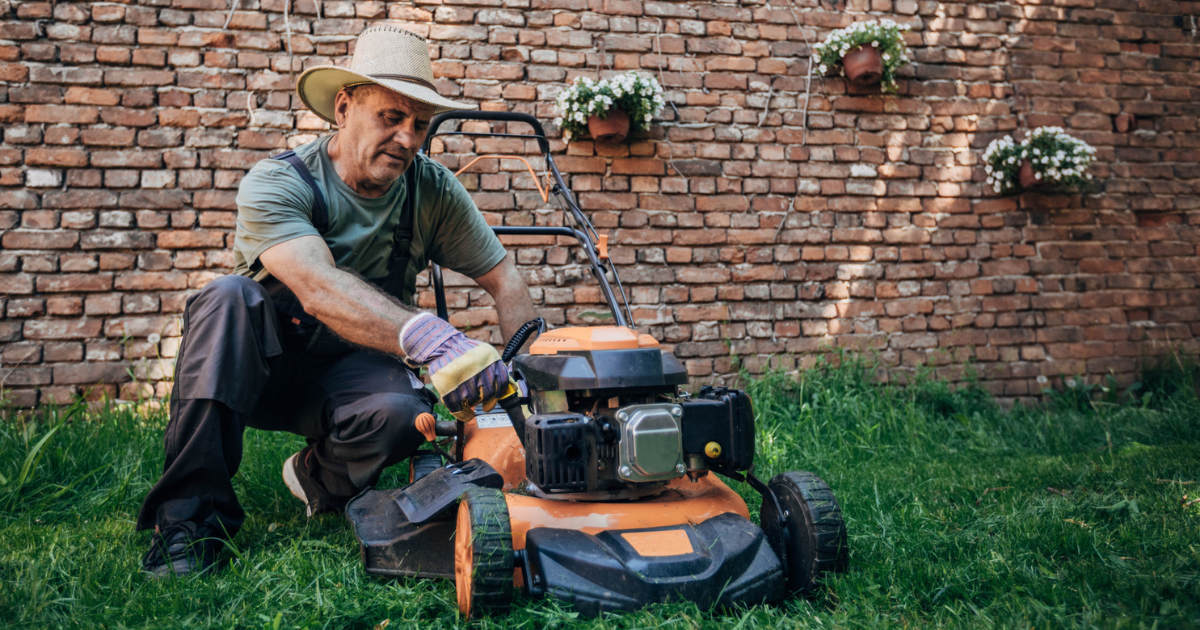6 tips to keep your summer safe


As warm weather increases and people begin to spend more time outdoors, the incidence of outdoor injuries also rises. But with a little preplanning and commonsense, you can prevent many summertime injuries so you can enjoy the season safely and free of stress.
Consider these tips to keep you and your family safe this summer.
1. Be careful around lawnmowers
Lawnmower accidents account for more than 80,000 injuries nationwide each year. As you pull out your lawnmower this season, one of the first things you should do is get it serviced to make sure it is in good functioning condition. Do not remove any safety devices – they are there for a reason. If you must clear grass and debris from the blades while mowing, make sure it is completely turned off before you attempt to clean them and always use a stick or other device to clear the blades rather than your hands. To protect yourself, wear closed-toe shoes as well as protective eyewear. Children should be at least 12 years of age before they begin mowing. A large number of lawnmower injuries occur to bystanders. Always keep pets or children away when you are mowing. A rock or pebble that is hurled through the air from fast-moving blades can create substantial injury.
Do you have a primary care doctor?
A primary care doctor can handle your general health care needs as well as many of your urgent needs. He or she also has the advantage of knowing your health history. Find a doctor near you.
2. Watch for heat exhaustion
The combination of high temperatures, high humidity and strenuous physical activity can cause the body to overheat, leading to heat exhaustion. Overheating is dangerous and can even be life-threatening. Reducing your chances of heat exhaustion is all about prevention. As the days warm up, plan to exercise in the morning or the evening when the temperature is a bit cooler. If you are going to be spending time outside, hydrate with plenty of water before, during and after you exercise. If you wait until you are thirsty, that means you have waited too long and you are already getting behind in your body’s fluid needs.
Symptoms of heat exhaustion include heavy sweating, faintness, weak, rapid pulse, low blood pressure, nausea, low-grade fever, headache and dark urine. At the first sign of heat exhaustion, go to a cool place, sit in front of a fan, remove extra clothing, rehydrate with cool water (icy, cold water can cause cramping), rest for two to three hours and stay out of excessive heat for about a week.
3. Avoid sunburns
The number of sunburns you suffer as a child can significantly increase your risk of developing skin cancer as an adult. And the earlier you get them, the greater the risk. Stay away from tanning beds, which are even worse than the sun because they provide a very concentrated dose of UV light. Wear a sun protection factor (SPF) of 30 or greater and make sure you apply it at least 15 minutes before you go outside as this is how long it takes to become effective. Reapply sunscreen every two hours. If you are sweating heavily or swimming, reapply every 45 minutes, even if you’re using a water-resistant formula. It is best to keep babies under six months out of the sun. If they must be outside, apply sunscreen.
4. Defend against bug bites
To reduce the prevalence of mosquitoes around your home, remove any stagnant water. Remember, mosquitoes are more prevalent during dawn and dusk. If you must be out, wear a bug repellent with DEET and long sleeves and slacks. Rinse DEET from your skin when you come inside.
5. Be safe on bicycles and ATVs
The best way to prevent bicycling and all-terrain vehicles (ATVs) injuries are to always wear helmets. Your children should be at least 16 years old before driving an ATV.
6. Remember no one is drown-proof
No matter how well you or your child can swim, stay alert. Always keep young children within arms-length and make sure there is a lifeguard on duty. If you are near a lake or river, children should wear life vests. As a parent, you should also consider learning basic cardio-pulmonary resuscitation (CPR). Alcohol is the biggest culprit when it comes to drownings among adults, accounting for more than 20 percent of adult drowning deaths.
Where to go in case of injury
If you or a family member is injured, sometimes it can be difficult to determine where you should go. In many instances, you can see your primary care doctor for care and treatment if it is during office hours. If it’s after office hours, visit one of our Immediate Care Clinics for minor illnesses and injuries to avoid the longer waits of an emergency room. For more severe injuries like heat exhaustion, head injuries, uncontrollable bleeding or serious breaks, go to the nearest emergency room.





